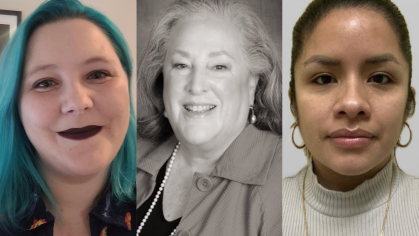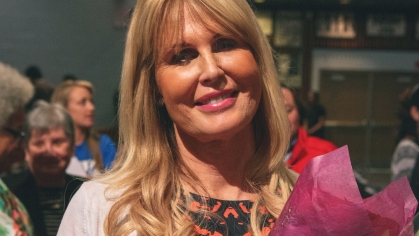By Shreya Gupta
For Rutgers School of Social Work alum Isheaba Ellis, wearing two hats is the norm. A licensed clinical social worker (LCSW), Ellis started her own teletherapy company TheraCouch, which provides remote therapy services to individuals and couples in New Jersey and Washington D.C., in 2019.
Her connection to Rutgers School of Social Work dates back to 2000, when she enrolled in the BASW program. As an Educational Opportunity Fund (EOF) scholar, Ellis had the opportunity to get a taste of the college experience before other incoming freshmen came to campus. She cultivated friendships with fellow EOF scholars that remain strong today. After graduating in 2005, Ellis leveraged the career diversity social work offers and immersed herself in settings including mental health centers, prisons, inpatient acute care clinics, and schools.
Ellis was doing mental health-based work at a school when TheraCouch was born. Her decision to start a business was rooted in a long-held desire to be an entrepreneur. Through TheraCouch, she hopes to erase the stigma surrounding mental health in communities of color. She also wants to eliminate common barriers in equitable access to quality mental health care. “Teletherapy gives clients the same advantages that in-person therapy does with the added benefit of speaking with clients in the comfort of their own homes,” Ellis says.
Managing the responsibilities of a therapist, social worker, and business owner is not an easy task. “Self-care is the key to striking a balance between them all,” Ellis explains. “I no longer see clients on the weekends. Instead, I take that time to reset so that I am energized and equipped to provide them the support they deserve during the week.” Ellis also has an entire team she depends on to assist her in running her own company. “I realized that it isn’t practical to try to fulfill each of my business' needs independently,” she notes. “By assigning tasks to those who are more qualified to do so than myself, I am also able to create jobs in my community."
Ellis credits obtaining a degree in social work for her success. "It was one of the smartest decisions I've made," she says. Ellis hopes to inspire other social workers to dive into entrepreneurship like she did. She also wants it to be integrated into the social work curriculum. “The mesh between entrepreneurship and social work is a whole new world holding so much potential,” she remarks.



